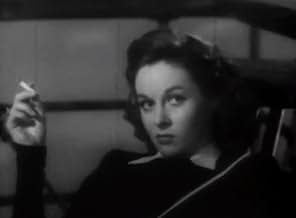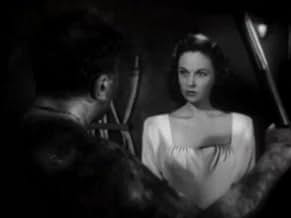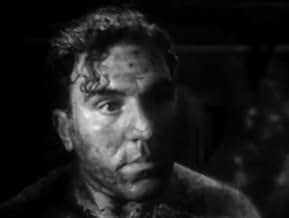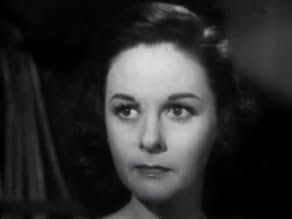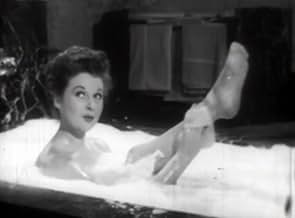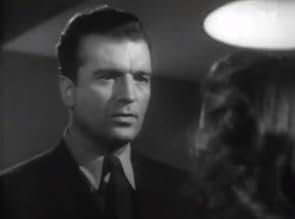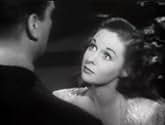During the 1940s, social class conflict is depicted when a spoiled socialite, traveling on a freighter, calls the ship's head stoker a hairy ape, provoking him into stalking the rich woman o... Read allDuring the 1940s, social class conflict is depicted when a spoiled socialite, traveling on a freighter, calls the ship's head stoker a hairy ape, provoking him into stalking the rich woman once ashore in New York.During the 1940s, social class conflict is depicted when a spoiled socialite, traveling on a freighter, calls the ship's head stoker a hairy ape, provoking him into stalking the rich woman once ashore in New York.
- Director
- Writers
- Stars
- Nominated for 1 Oscar
- 1 nomination total
- Aldo the Baron
- (uncredited)
- Third Engineer
- (uncredited)
- Minor Role
- (uncredited)
- Refugee Violinist
- (uncredited)
- Bar Patron-Brawler
- (uncredited)
- Nightclub Patron
- (uncredited)
- Goliath the Gorilla
- (uncredited)
- Saloon Brawler
- (uncredited)
- Minor Role
- (uncredited)
- Director
- Writers
- All cast & crew
- Production, box office & more at IMDbPro
Featured reviews
My glee at finally having this movie, was short lived when I noticed that, although the film had been restored, its technical quality looks as if it hadn't been--and needed to be. It's hard to imagine what this film looked like BEFORE it was restored!!
In addition, there is very little similarity between O'Neill's play and this movie--either in plot or dialogue. Any similarity between the two is purely superficial, and the movie leaves out the GUTS of O'Neill's play altogether. Perhaps that's why the movie made such little sense and hardly held together at all. Although both the PLAY and the MOVIE stress the way that the classes view each other, O'Neill's PLAY (written in 1922) has a healthy dose of anti-capitalism and a bar speech suggesting Marxism, even if only by a comical drunk. The 1944 movie seems to have expunged any hint of these references.
Near the end of the PLAY, fellow workers tell 'Yank' to get even with Mildred's wealthy father by joining the Wobblies or the Industrial Workers of the World (IWW). No one mentions this to 'Hank,' (William Bendix): unlike in the play, Hank never tries to join the local I.W.W. (Even the protagonist's name is changed from 'Yank' in the play to 'Hank' in the MOVIE. The name 'Hank' could be short for Harry, suggesting 'Hairy' in the name of the play.)
In the PLAY, Mildred willfully does volunteer social work in Manhattan's Lower East Side and is ridiculed by her aunt for 'slumming.' In the MOVIE, Mildred (Susan Hayward), pretends to do social work--in Lisbon, while having fun instead. Here, her longtime friend and companion, Helen (Dorothy Comingore), is the real do good-er who chides Mildred for her not doing the work assigned to her in Lisbon. In the PLAY, Mildred's critic is her aunt, who says that her good works just make the lower class feel worse. Again, there are complete changes in characters and motives from the aunt in the PLAY to the friend in the MOVIE!!
In the PLAY, Mildred is NOT the vixen-like villain that she is in the MOVIE. True, Hank is arrested and jailed for a disturbance outside of Mildred's 5th Avenue apartment, but not for the same reasons as in the movie. After being jailed, he is put in cell alone, not with other prisoners who talk to him about labor unions (as in the PLAY).
In the MOVIE, after he is released from jail, he visits the gorilla cage, notices that the gorilla likes to smash things, and then sneaks into Mildred's apartment to 'smash her.' In the MOVIE, we don't know how he gets any revelation by 'seeing how the other half lives' and deciding that their lives are just like his. That is, if he doesn't 'smash her,' as his voice-over tells him to do, we don't know why. Most importantly, the final scene of the PLAY is at the gorilla's cage of the carnival. The MOVIE just kind of throws that scene in earlier--BEFORE he sneaks into Mildred's apartment to 'smash her.'
While there ARE SOME common scenes between the play and the movie, the MOVIE SO mixes up the intent of the PLAY that I am not sure why O'Neill--who must have had to agree with some of the movie content--even agreed to let the movie be shown as a representation of the PLAY.
Not only does the movie give a different slant to the play, it also leaves out scenes (such as the communist scene) and it inserts others (beefing up Susan Hayward's role). The result is a good, watchable film albeit a little old-fashioned, but it's shocking to think that someone could see the movie and assume it gives a reliable idea of the play.
I caught this film on channel 13 wee hours on a Sunday morning.
The film is much better in the second half as we see more from Susan Hayward's character. She takes the acting honours in the film. The scenes between her and Bendix are emotionally charged and she portrays an unlikeable wealthy spoilt brat very convincingly. Dorothy Comingore is also good as her friend Helen, who finally abandons her after Mildred's appalling treatment of her friend, Tony (John Loder). Bendix is good in the lead role but this film is ultimately let down by the noise levels. The shouty dialogue is very annoying and the film is occasionally inaudible because of the shouting. Thank goodness for the scenes with Hayward where we can involve ourselves with the dialogue more clearly. The film starts badly with lots of shouting and a fight in a bar that goes on for far too long. Unfortunately, half of the film is delivered in this intrusive way, so it's ultimately just not very good.
Did you know
- TriviaThe failure of the original copyright holder to renew the film's copyright resulted in it falling into public domain, meaning that virtually anyone could duplicate and sell a VHS/DVD copy of the film. Therefore, many of the versions of this film available on the market are either severely (and usually badly) edited and/or of extremely poor quality, having been duped from second- or third-generation (or more) copies of the film.
- Quotes
Hank Smith: Dames, huh? That's a lot of tripe. They'll double cross you for a nickel or even nothing. Treat 'em rough - that's me, the whole bunch of 'em. They don't belong. They don't amount to nothing. Who makes the old tub go? It's us guys. Me! Me! I make her go.
Details
- Runtime
- 1h 32m(92 min)
- Color
- Aspect ratio
- 1.37 : 1

